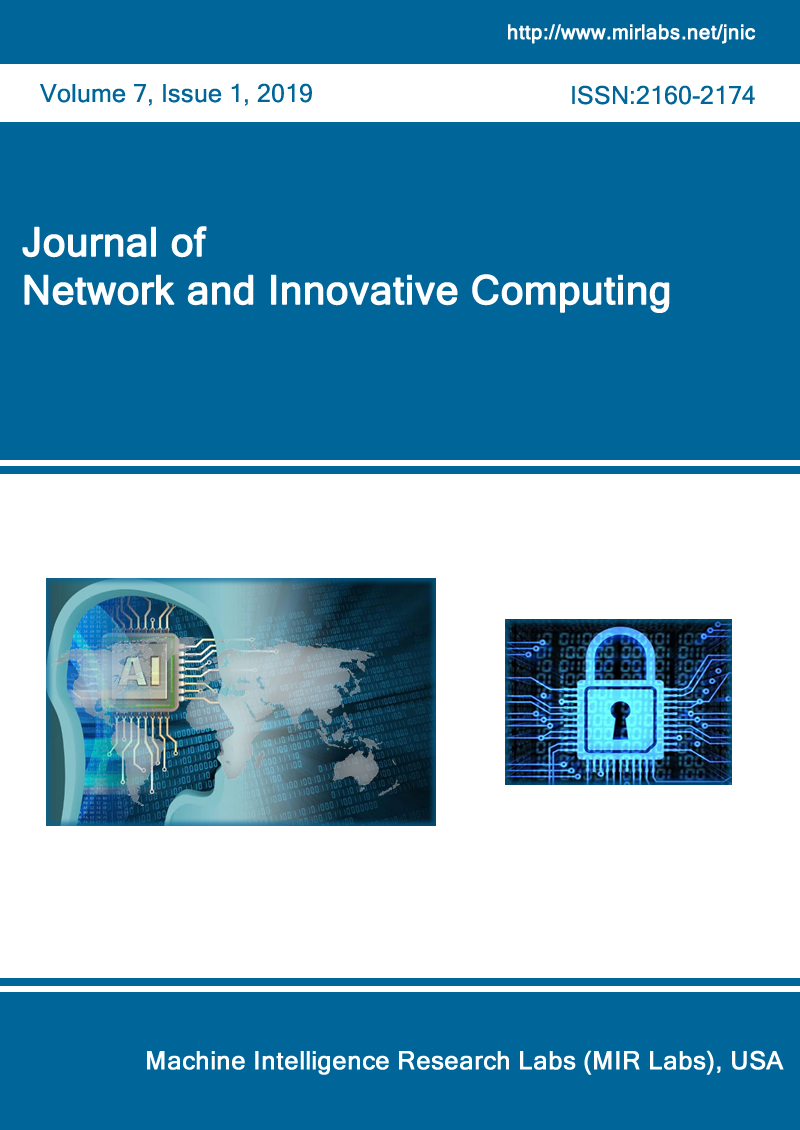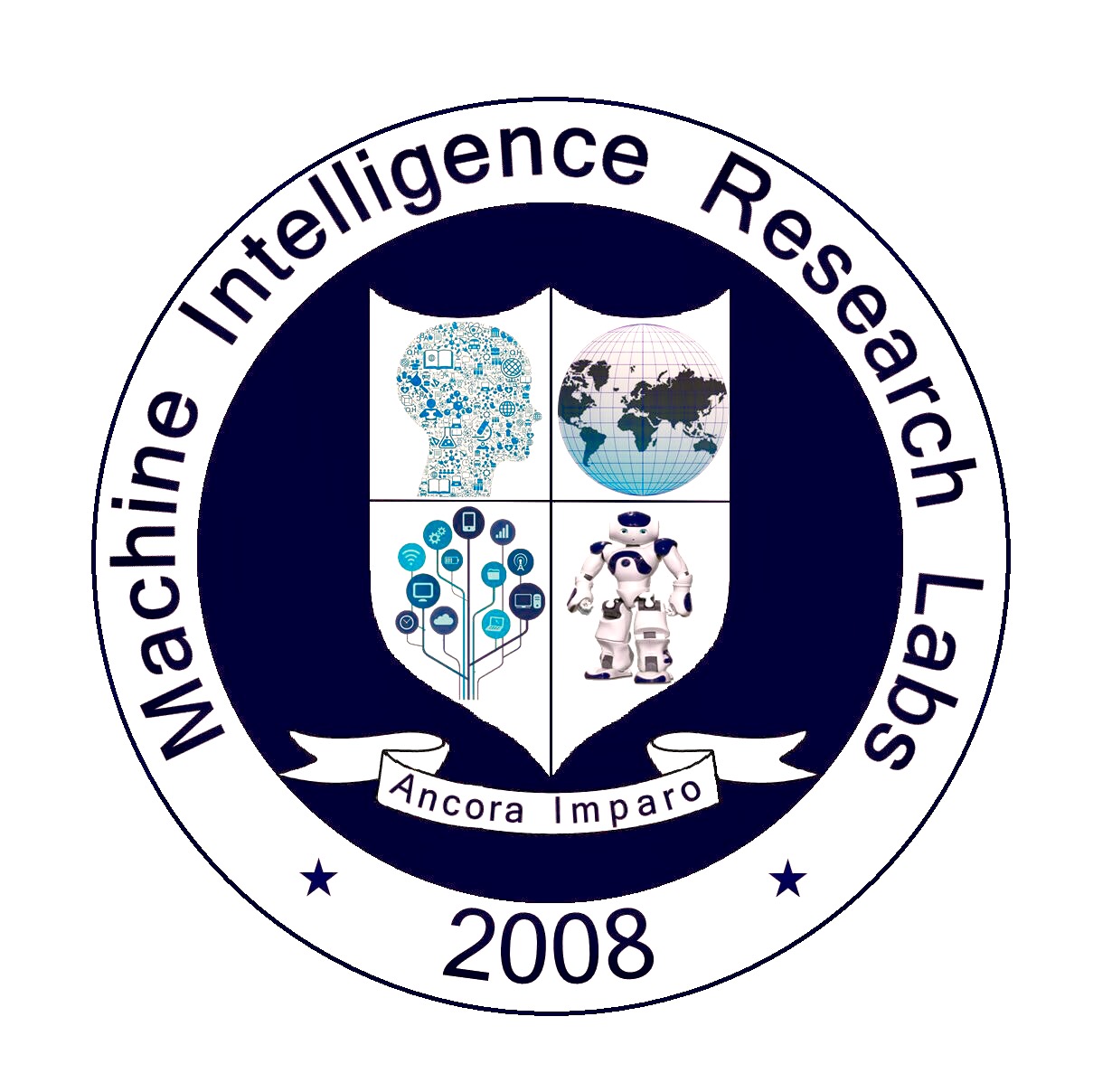Journal of Network and Innovative Computing(JNIC) ISSN 2160-2174 |
| |

A publication of |
 |
| Machine Intelligence Research Labs, USA |
| Editorial inquiries should be directed to the Editor-in-Chief |
General Instructions:
From time to time, Guest Editors are invited to produce Special Issues consisting of some articles grouped around a common theme. Proposals for Special Issues are welcome, as are Guest Editorials and Announcements.
In order to publish your article we need your agreement. Please take a moment to read the terms of this license.
By submitting your article to JNIC, you and all co-authors of your submission agree to the terms of this license. You do not need to fill out a copyright form for confirmation.
By submitting your article you grant us (the publisher) the exclusive right to both reproduce and/or distribute your article (including the abstract) throughout the world in electronic, printed or any other medium, and to authorize others (including Reproduction Rights Organizations such as the Copyright Licensing Agency and the Copyright Clearance Center, and other document distributors) to do the same. You agree that we may publish your article, and that we may sell or distribute it, on its own, or with other related material.
By submitting your article for publication to one of our publications, you promise that the article is your original work, has not previously been published, and is not currently under consideration by another publication. You also promise that the article does not, to the best of your knowledge, contain anything that is libellous, illegal or infringes anyone’s copyright or other rights. If the article contains material that is someone else’s copyright, you promise that you have obtained the unrestricted permission of the copyright owner to use the material and that the material is clearly identified and acknowledged in the text.
We promise that we will respect your rights as the author(s). That is, we will make sure that your name(s) is/are always clearly associated with the article and, while you do allow us to make necessary editorial changes, we will not make any substantial alterations to your article without consulting you.
Copyright remains yours, and we will acknowledge this in the copyright line that appears on your article. You also retain the right to use your own article in the following ways, as long as you do not sell it in ways that would conflict directly with our efforts to disseminate it. Acknowledgement of the published original must be made in standard bibliographic citation form.
You are free to use the manuscript version of your article for internal, educational or other purposes of your own institution, company or funding agency;
You may use the article, in whole or in part, as the basis for your own further publications or spoken presentations.
Starting 2013, Journal of Network and Innovative Computing (ISSN 2160-2174) will be published 1 Volume/year
Publication Ethics and Malpractice Statement
Section A: Publication and authorship
All submitted papers are subject to strict peer-review process by at least two international reviewers that are experts in the area of the particular paper.
The factors that are taken into account in review are relevance, soundness, significance, originality, readability and language.
The possible decisions include acceptance, acceptance with revisions, or rejection.
If authors are encouraged to revise and resubmit a submission, there is no guarantee that the revised submission will be accepted.
Rejected articles will not be re-reviewed.
The paper acceptance is constrained by such legal requirements as shall then be in force regarding libel, copyright infringement and plagiarism.
No research can be included in more than one publication.
Section B: Authors' responsibilities
Authors must certify that their manuscripts are their original work.
Authors must certify that the manuscript has not previously been published elsewhere.
Authors must certify that the manuscript is not currently being considered for publication elsewhere.
Authors must participate in the peer review process.
Authors are obliged to provide retractions or corrections of mistakes.
All Authors mentioned in the paper must have significantly contributed to the research.
Authors must state that all data in the paper are real and authentic.
Authors must notify the Editors of any conflicts of interest.
Authors must identify all sources used in the creation of their manuscript.
Authors must report any errors they discover in their published paper to the Editors.
Section C: Reviewers' responsibilities
Reviewers should keep all information regarding papers confidential and treat them as privileged information.
Reviews should be conducted objectively, with no personal criticism of the author
Reviewers should express their views clearly with supporting arguments
Reviewers should identify relevant published work that has not been cited by the authors.
Reviewers should also call to the Editor in Chief's attention any substantial similarity or overlap between the manuscript under consideration and any other published paper of which they have personal knowledge.
Reviewers should not review manuscripts in which they have conflicts of interest resulting from competitive, collaborative, or other relationships or connections with any of the authors, companies, or institutions connected to the papers.
Section D: Editors' responsibilities
Editors have complete responsibility and authority to reject/accept an article.
Editors are responsible for the contents and overall quality of the publication.
Editors should always consider the needs of the authors and the readers when attempting to improve the publication.
Editors should guarantee the quality of the papers and the integrity of the academic record.
Editors should publish errata pages or make corrections when needed.
Editors should have a clear picture of a research's funding sources.
Editors should base their decisions solely one the papers' importance, originality, clarity and relevance to publication's scope.
Editors should not reverse their decisions nor overturn the ones of previous editors without serious reason.
Editors should preserve the anonymity of reviewers.
Editors should ensure that all research material they publish conforms to internationally accepted ethical guidelines.
Edittors should only accept a paper when reasonably certain.
Editors should act if they suspect misconduct, whether a paper is published or unpublished, and make all reasonable attempts to persist in obtaining a resolution to the problem.
Editors should not reject papers based on suspicions, they should have proof of misconduct.
Editors should not allow any conflicts of interest between staff, authors, reviewers and board members.